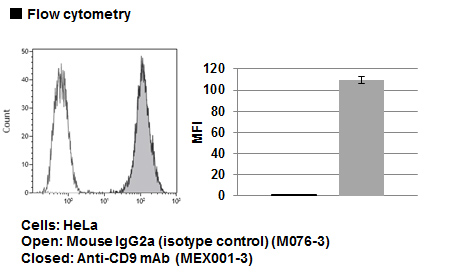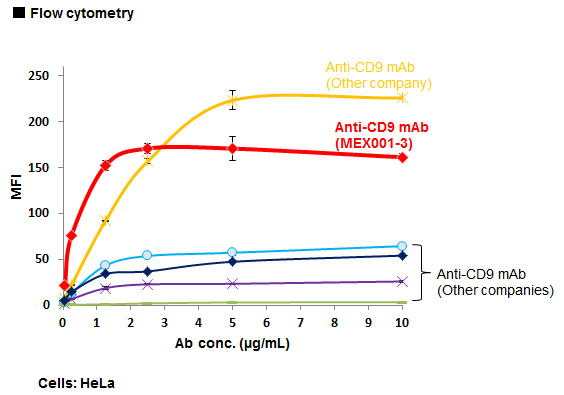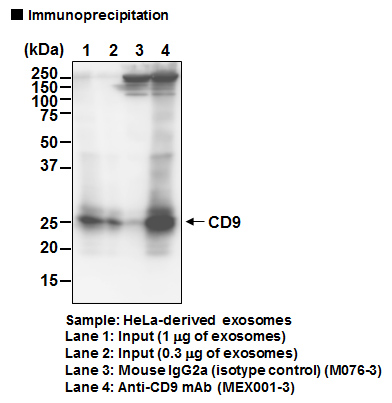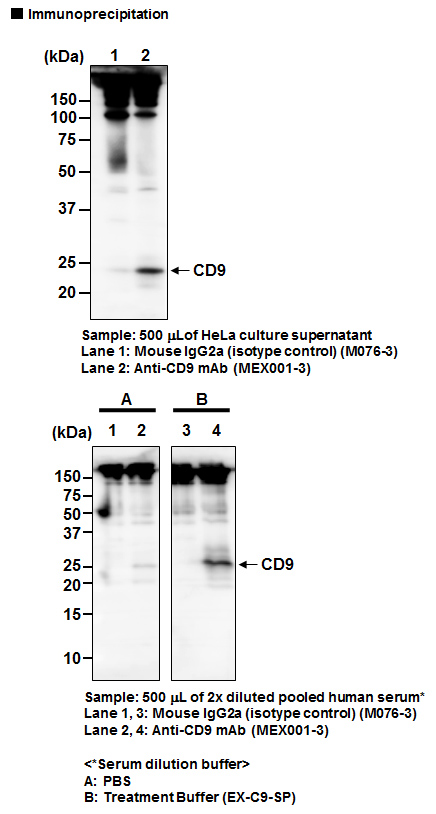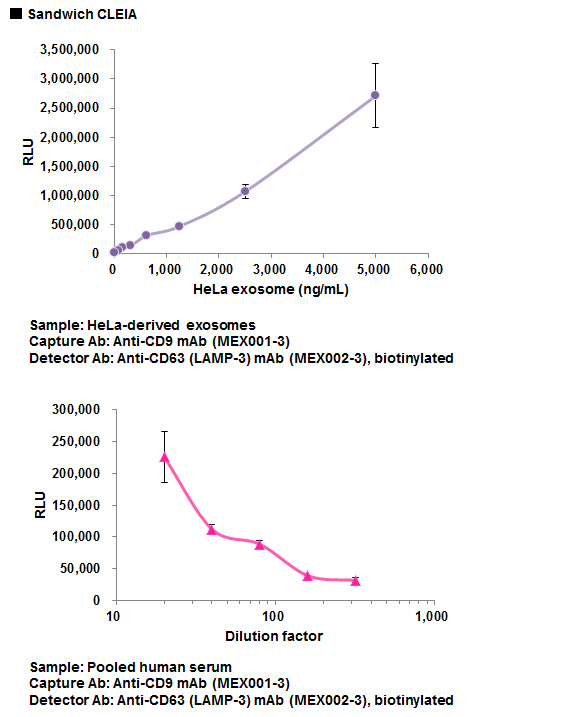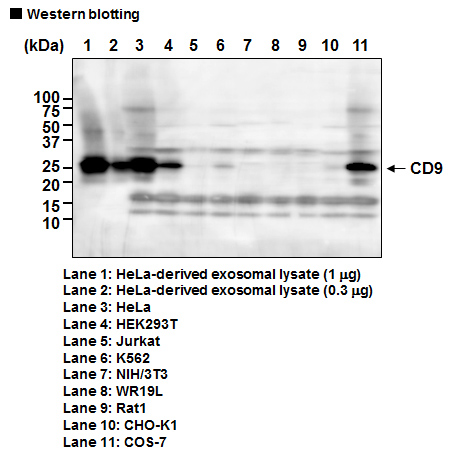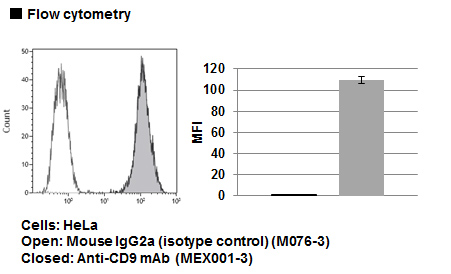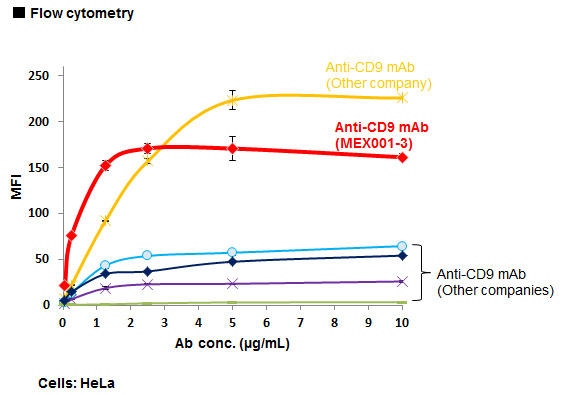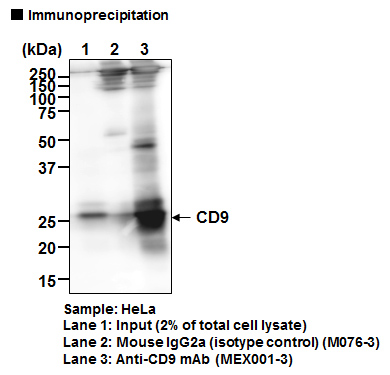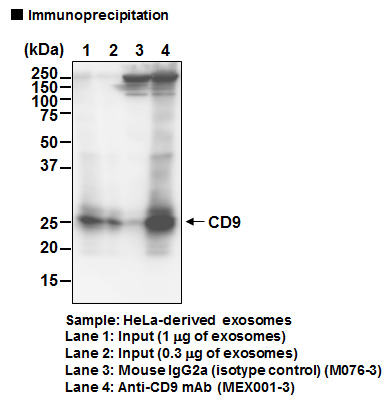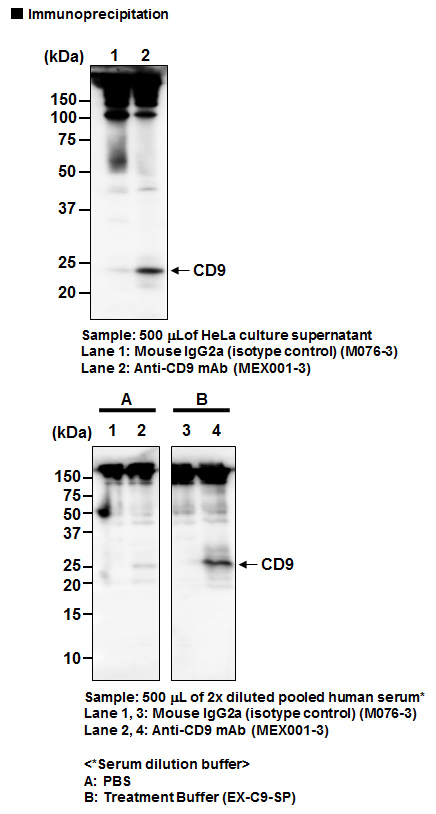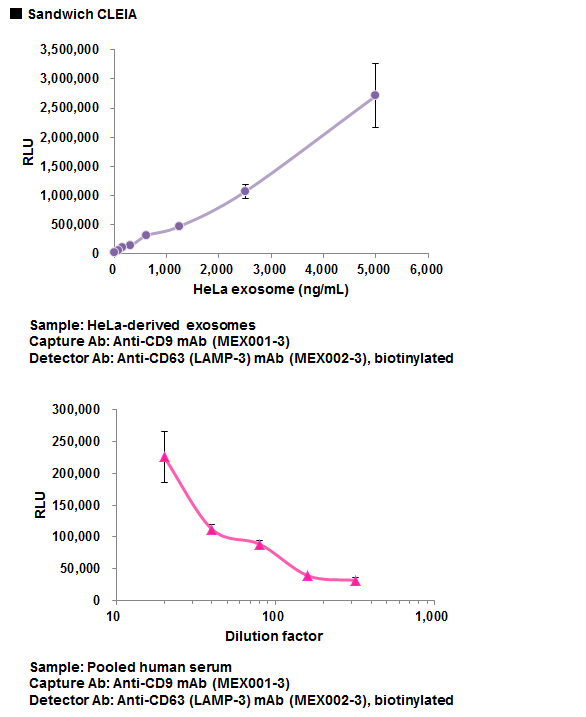Anti-CD9 mAb
Product Code:
MBL-MEX001-3
MBL-MEX001-3
Host Type:
Mouse
Mouse
Antibody Isotype:
IgG2a κ
IgG2a κ
Antibody Clonality:
Monoclonal
Monoclonal
Antibody Clone:
A100-4
A100-4
Regulatory Status:
RUO
RUO
Target Species:
- Human
- Monkey
Applications:
- Enzyme-Linked Immunosorbent Assay (ELISA)
- Flow Cytometry
- Immunoprecipitation (IP)
- Western Blot (WB)
Shipping:
4°C
4°C
Storage:
-20°C
-20°C
No additional charges, what you see is what you pay! *
| Code | Size | Price |
|---|
| MBL-MEX001-3 | 100 uL | £404.00 |
Quantity:
Prices exclude any Taxes / VAT


